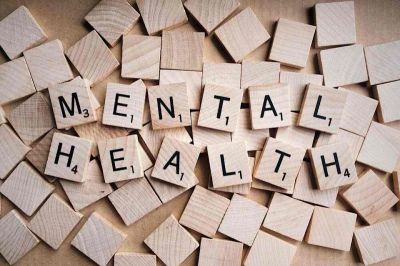Please stop using the 'C-word '

On behalf of the 52.9 million Americans who have been diagnosed with a mental health challenge, please stop using the "C-word" every time there’s an incident of mass violence. Although the perpetrator may have a mental illness, automatically labeling them “crazy” does a great disservice to people who live with mental illness every day.
In light of recent attacks and crises, there has been renewed attention placed on mental health — and it hasn’t all been positive. As someone who lives with a mental health diagnosis, I can tell you that this does not in and of itself cause you to become a raving lunatic. That’s a harmful connection to reinforce. “Crazy” has been used to portray those who suffer with mental illness as dangerous, unpredictable and incapable of rational behaviors. It’s a word often used without any serious thought.
The relationship between mental illness and violence has been oversimplified. The widespread belief is that people with a mental health challenge are more prone to commit acts of irrational violence and aggression. Most of us with a mental health diagnosis do not have violent tendencies. In fact, studies have shown that people living with mental illness are far more likely to be the victims of violent crimes than the perpetrators! A 2021 article published by the Harvard Review of Psychiatry states, “Symptoms of mental illness by themselves rarely cause violent behavior and thus cannot reliably predict it.” Yet, society continues to blame mental illness as the primary root of crimes against humanity.
A person's mental health, especially if undiagnosed or not treated properly, certainly could play a role in these tragedies, but it might be only one of many other factors that led them to this point. It is far too simplistic to conclude, "Well, the shooter had a mental illness. He's obviously crazy!"
When someone engages in mass violence, many factors will have created the perfect storm for them to act in such an inhumane manner. Every time we oversimply these tragedies and categorize the perpetrator as a "crazy lunatic," we fuel the public perception that all mental health patients are dangerous individuals. There are other things to be mindful of, as well:
- We risk adding to the shame and stigma regarding mental illnesses. Research shows that people cope better when they are able to freely talk about the issues regarding their mental health (including those who don't have a diagnosis).
- We’re showing a disregard for things like emotional regulation, trauma, intellect, and a whole host of emotional factors that also play a part in creating the "perfect storm" for things like this to happen. It may not be the person’s mental illness that is driving the violence, but factors like having been abused as a child, being unemployed, or living in a high-crime neighborhood.
- By using the "C-word,” we are further marginalizing an already marginalized group of people. Could calling someone a "crazy lunatic" be just as wrong as calling someone the "N-word?”
This is a complex issue and needs to be viewed as such. When we minimize the root cause of what led someone to violently hurt someone else, it’s a crime against society. We can't overlook that we’re living in a broken world in which evil exists and cannot be eradicated. However, with that said, we also have a broken mental health system in America.
Through his social media rants and such, that New York subway shooter was illustrating that he needed serious help. Those who have more serious, persistent mental and emotional issues are not receiving the care they need because there’s a lack of adequate, long-term treatment options in our country. These kinds of issues cannot be resolved by quickly prescribing someone medication after a 12-minute appointment with a psychiatrist.
We must continue to advocate on both the state and national levels for mental health reforms to repair the issues that are “broken” in the system. Until then, could we all agree that we can begin with one simple step of NOT using the "C-word?” There’s always room in our world for more empathy.
Brad Hoefs is a pastor, international speaker and mental health advocate who is passionate about coaching, inspiring and empowering others with hope no matter what circumstance they may be facing. He is best known as the founder and executive director of Fresh Hope, an international network of peer-to-peer Christian mental health support groups and resources.




























